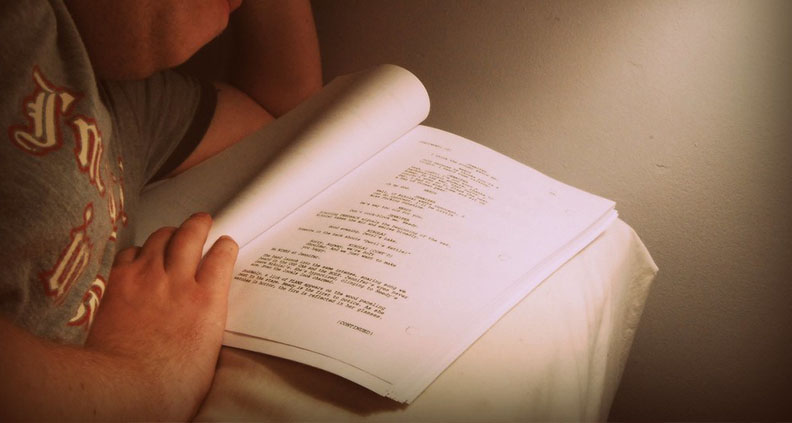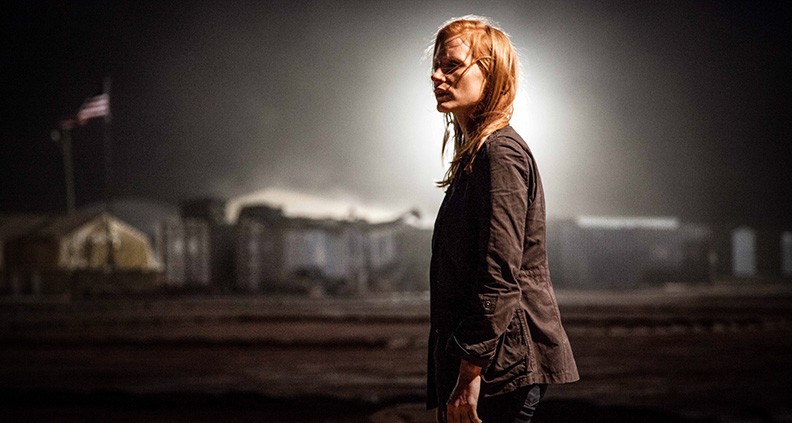Writers’ Nook: Avoiding the Pitfalls of Adapting Stories Based on Real Life
Before becoming an independent producer and story consultant, filmmaker Rona Edwards spent several years working in creative development for production shingles headed by the likes of John Larroquette (the Emmy-winning actor) and Michael Phillips (the Oscar-winning producer.) Since striking out on her own, Edwards has had her own projects set up in both television and feature film at places like NBC, USA Network, Warner Bros, HBO and Lifetime TV.
With business partner Monika Skerbelis, Edwards also co-wrote the books The Complete Filmmaker’s Guide to Festivals: Your All Access Pass to Launching Your Film on the Festival Circuit and I Liked It, Didn’t Love It: Screenplay Development from the Inside Out, currently in its 3rd edition. (Check out our interview earlier this year with Monika Skerbelis here.)
We asked Edwards to take us through the in’s and out’s of bringing stories—particularly those based on real life—to the screen, including what pitfalls newbies should be looking out for.
RONA EDWARDS

How did you start out in producing?
Edwards: Before working for Michael Phillips (The Sting), I’d worked at a couple of production companies, wrote my own scripts, worked as Vice President for Emmy winners John Larroquette and producer Fern Field. I went from looking for feature material for John to focusing on TV for Michael, so I was one of the few executives at that time that was able to straddle between the two mediums. When I left Michael, I wasn’t sure where to go next. A producer who’d pitched me while I was an executive convinced me to partner with him. That’s how I made the move into producing—and I wasn’t sure I was ready for it!
What are the top qualities to look for when identifying whether a story idea from the news or a magazine article might make for a compelling film?
Edwards: It’s always about character. Premise is important, but if I don’t want to follow the character then it’s not going to get me invested in the story. To me, it’s all about who’s up for a challenge. What do they want? How difficult is it going to be for them to get it? What’s a way into a character’s life that I can find accessible? If you look at The Silence of the Lambs, I’m so fascinated by Hannibal Lecter. He’s really quite evil, so why do I like him? Because he shows Clarisse respect and is oddly protective of her. Everybody has a dark side and it’s a fine line between sanity and insanity—that’s someone you want to watch. But we’re also invested in how a young upstart FBI Academy recruit is going to deal with the more experienced Lector in order to get what she needs and wants. I like stories that take me into worlds that are not my life. Movies like The Joy Luck Club, Mudbound, The Florida Project, Amelie. I love moral dilemmas that force characters to overcome various things in their lives. The dilemmas characters face is what forces me to want to know more and see how they achieve or not achieve their objective but hopefully become better human beings because of it. So it always comes back to character.

How do you find the best narrative to hone in on within a true story?
Edwards: Sometimes it’s just there. Other times you have to invent a few things to help get it there. As a creator, writer, producer, you have to be able to take that life story and make it into a movie. And not every story in life deserves to be a movie. It may need something extra, like an amalgamation of characters that represents and sometimes fictionalizes part of your hero’s life. Also, without a good antagonist, there’s no conflict; without conflict, there’s no drama. You can’t have a character that just heads straight to success without any hiccups along the way.
Let’s talk briefly about the differences between “a true story,” “based on a true story,” “inspired by a true story” and what appears on the title card of Zero Dark Thirty: “Based on firsthand accounts of actual events.”
Edwards: “Inspired by” means that it’s based on a real-life event, but that a lot of the characters and scenes surrounding it are fictionalized. You may want to use “inspired by” if you’ve changed the story so much that it’s basically just an essence of the original story. “Based on a true story” is more of an accurate accounting of the story, though there’s probably some dramatic license taken. “Based on firsthand accounts” of actual events is a story told about the same event from a variety of people. Because everyone’s perspective can be different, you hope you can get to the truth by listening to them all and putting it together in the way you think it might have occurred.

Let’s go into the legal aspects now. What does a writer/producer have to do when the story is in the public domain?
Edwards: If it’s public domain, you don’t need to secure the rights. Studios or networks usually prefer to have source material, so they’ll often secure the rights to the book or article on which to base the film. It’s probably best to consult with a lawyer on a case-by-case basis depending on how you decide to tell the public domain story. If a character in the story is still alive, then you may still have to secure the rights of that person. If the person is a public figure, you can usually tell the story without rights but usually only that which we know. However, I guess we’ll find out more when/if the Olivia De Haviland vs. Feud/Ryan Murphy case is heard by the Supreme Court. That will be precedent setting. We’ll find out if a person who is a living public figure has any right to stop what they may call a false depiction of him or herself, or is it free speech and protected by the First Amendment? A public figure that is deceased has no real rights, but if you show their families who are alive there could be some issues there unless you depict a situation that has already been publicly documented.
What about securing the film rights to a story that’s not in the public domain. What’s the first thing you should do?
Edwards: It all depends. Are you optioning an article or book, or someone’s life story? If I read a magazine article that I really like, instead of optioning the article from the magazine I may go to the people mentioned in the article and option their story rights directly. When dealing with an Option Agreement for life rights, if you don’t have a lot of money to spend on option money, try to negotiate a small amount up front with a “set-up” bonus for the person or author payable upon the material being set up at a network, studio, financier or production company. Sometimes people don’t want to give you complete rights to their whole story. In that case, you can specify the specific time period of that person’s life that can be used in the story.

What are some of the pitfalls to avoid when trying to secure the film rights on a story?
Edwards: Learn how to read contracts and understand all the fine print. Definitely get a lawyer or at least use a good boilerplate for a life-rights option or screenplay option. When you’re adapting a true story be up front with the person you’re dealing with. Let them know you intend to honor their story but that there might be changes. I would not recommend putting into any kind of agreement where the person [on whose life the film is based] has the right to approve the script, because they may offer notes/opinions that may not work with the kind of story you want to tell. You want to do right by them, but at the same time, there are so many ways to tell a story and you don’t want your hands tied. You never want to give them approval rights or there will be a noose around your neck and/or the writer’s neck to create the best story possible.
For over 40 years, Film Independent has helped filmmakers get their projects made and seen. The nonprofit organization’s core mission is to champion creative independence in visual storytelling and support a community of artists who embody diversity, innovation and uniqueness of vision.
Film Independent Members watch nominees and vote for the winners of the Spirit Awards. To become a Member of Film Independent and make your vote count for next year’s 40th Annual Spirit Awards, just click here. To support our mission with a donation, click here.
Keep up with Film Independent…
(Header: Jarhead)
